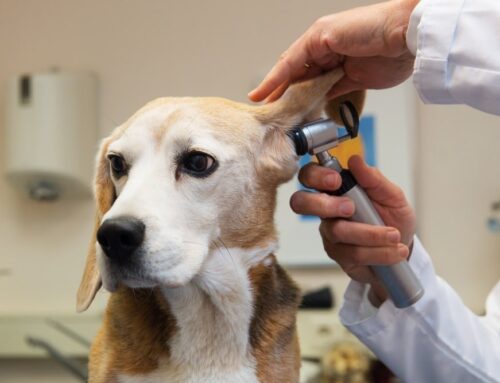Understanding Breed-Specific Health Concerns in Pets
Pets, like humans, can be predisposed to specific health issues based on their breed. These vulnerabilities often arise from genetic factors shaped by breeding practices over generations. At Emerald Animal Hospital, we focus on providing tailored preventive care that acknowledges these breed-specific predispositions as part of our comprehensive approach to pet health.
Common Diseases in Popular Dog Breeds in Los Angeles
Certain dog breeds are predisposed to specific genetic and hereditary conditions. Understanding these breed-related health risks can help pet owners take proactive steps toward early detection, management, and treatment. At Emerald Animal Hospital, we provide expert diagnostics, preventive care, and advanced treatments to ensure your dog lives a long, healthy, and happy life.
Brachycephalic Syndromes in Bulldogs and Pugs
Breeds such as Bulldogs, Pugs, French Bulldogs, and Boston Terriers are prone to brachycephalic obstructive airway syndrome (BOAS) due to their short noses and flat faces. This can result in:
- Breathing difficulties (snoring, wheezing, labored breathing)
- Exercise and heat intolerance (high risk for heatstroke)
- Dental overcrowding (leading to gum disease and infections)
- Increased risk of aspiration pneumonia
Management & Treatment
- Weight control – Keeping these dogs lean helps with breathing.
- Surgery – Procedures such as nostril widening (nares resection) or soft palate trimming can improve airflow.
- Environmental management – Avoid excessive heat and stress, which can worsen symptoms.
If your dog is showing signs of breathing distress, seek veterinary care immediately!
Hip Dysplasia in German Shepherds and Labradors
German Shepherds, Labradors, Golden Retrievers, and Rottweilers are at high risk for hip dysplasia, a genetic condition where the hip joint doesn’t fit properly into the socket, leading to:
- Lameness or difficulty rising after rest
- Reluctance to run, jump, or play
- Ongoing joint pain and arthritis
Treatment & Prevention
- Weight management – Extra weight increases stress on the joints.
- Joint supplements – Glucosamine, chondroitin, and omega-3s can support joint health.
- Low-impact exercise – Swimming is a great way to strengthen muscles without excessive joint strain.
- Surgical options – In severe cases, total hip replacement or femoral head osteotomy (FHO) can restore mobility.
Early detection through X-rays and veterinary screenings can help slow the progression of hip dysplasia.
Heart Disease in Cavalier King Charles Spaniels
Cavalier King Charles Spaniels are highly predisposed to mitral valve disease (MVD), a progressive degenerative heart condition that affects the mitral valve, leading to:
- Chronic coughing
- Exercise intolerance
- Heart murmur
- Fluid buildup in the lungs (congestive heart failure)
Management & Treatment
- Early detection through routine heart screenings is key!
- Medications like ACE inhibitors and diuretics can help slow progression.
- A low-sodium diet supports heart health.
Regular cardiac check-ups can extend a Cavalier’s lifespan by years!
Intervertebral Disc Disease (IVDD) in Dachshunds and Corgis
Dachshunds, Corgis, French Bulldogs, and Basset Hounds are at high risk of IVDD, a spinal condition where the discs between the vertebrae degenerate, leading to:
- Back pain or stiffness
- Weakness or wobbliness in the hind legs
- Paralysis if severe
Treatment & Prevention
- Avoid excessive jumping – Using ramps and stairs can prevent spinal strain.
- Maintain a healthy weight – Extra weight puts more pressure on the spine.
- Physical therapy – Strengthening the core muscles supports spinal health.
- Surgical options – In severe cases, spinal surgery (hemilaminectomy) can restore mobility.
If your dog suddenly becomes paralyzed, seek emergency veterinary care immediately!
Glaucoma in Poodles and Other At-Risk Breeds
Poodles (all sizes), Cocker Spaniels, and Basset Hounds are genetically predisposed to glaucoma, a condition where pressure builds up inside the eye, leading to:
- Eye redness and squinting
- Cloudy or bluish appearance of the eye
- Vision loss or complete blindness
Treatment & Management
- Regular eye exams to check intraocular pressure (IOP).
- Medicated eye drops can reduce pressure.
- Surgery (such as laser therapy or enucleation) may be required in severe cases.
Glaucoma is a painful emergency—seek treatment as soon as symptoms appear!
Endocrine Disorders in Miniature Schnauzers
Miniature Schnauzers are at increased risk of diabetes and other endocrine disorders, including:
- Diabetes mellitus – Causing excessive thirst, weight loss, and increased urination.
- Hyperlipidemia – A condition where fats build up in the bloodstream, leading to pancreatitis.
- Hypothyroidism – Resulting in weight gain, lethargy, and hair loss.
Prevention & Treatment
- Regular bloodwork helps catch endocrine disorders early.
- A low-carb, high-protein diet supports diabetic management.
- Insulin therapy is required for diabetic dogs.
Endocrine disorders require lifelong management, but early diagnosis improves quality of life.
Dilated Cardiomyopathy (DCM) in Dobermans and Boxers
Dobermans, Boxers, Great Danes, and Cocker Spaniels are genetically predisposed to dilated cardiomyopathy (DCM), a condition where the heart becomes enlarged and weakened, leading to:
- Lethargy and fainting spells
- Coughing and labored breathing
- Sudden collapse
Prevention & Management
- Routine echocardiograms and heart screenings can detect early signs of DCM.
- A taurine-rich diet may help reduce risks in susceptible breeds.
- Medications like beta-blockers and ACE inhibitors can slow disease progression.
- DCM can be life-threatening—early screening is crucial!
Frequent Health Issues in Popular Cat Breeds
Kidney Diseases in Persians
Persian cats are genetically predisposed to polycystic kidney disease, which can lead to kidney failure if not managed properly. Early symptoms include increased thirst and urination, weight loss, and poor coat condition. Regular blood and urine tests are vital for early detection and management. Dietary management and medications can slow progression and improve quality of life.
Long-term Management and Owner Guidance
Managing kidney disease involves regular monitoring and dietary and medication adjustments. Owners can support their cats by providing a diet low in phosphorus, ensuring ample hydration, and minimizing stress to promote kidney health.
Hypertrophic Cardiomyopathy in Maine Coons
Maine Coons can suffer from hypertrophic cardiomyopathy, a serious heart condition requiring ongoing management. Symptoms include lethargy, difficulty breathing, and sudden collapse. Regular veterinary visits for heart function monitoring, including echocardiograms and blood pressure checks, are essential. Medications can manage symptoms and improve heart function.
Recognizing Emergencies and Home Care
In emergencies, such as difficulty breathing or fainting, immediate veterinary intervention is critical. Owners can help manage the condition by monitoring respiratory rate and ensuring a calm environment to reduce stress on the heart.
Respiratory Issues in Himalayans
Similar to certain dog breeds, Himalayan cats can experience difficulties due to brachycephalic airway syndrome. Symptoms include noisy breathing and difficulty eating. Addressing these issues promptly through preventive measures and treatment is critical. Regular monitoring and weight management are essential components of care.
Home Environment Adjustments
Creating a stress-free environment, with easy access to food and water, and maintaining a healthy weight are key strategies to minimize respiratory issues. Owners should be vigilant about signs of respiratory distress, seeking immediate care if they occur.
Preventive Measures and Regular Care
Regular veterinary visits are crucial for early detection and management of breed-specific health issues. During these check-ups, we can tailor preventive treatments and recommend lifestyle adjustments to address the unique needs of each breed, potentially averting severe health problems down the line. Diagnostic tests such as blood panels, imaging, and genetic screenings might be recommended depending on the breed and health status.

Choosing the Right Pet for Your Lifestyle
Choosing a pet requires understanding the breed’s typical lifespan, activity level, and grooming needs to ensure they fit well with your lifestyle. Consideration of potential health issues associated with different breeds can prevent future challenges. Consulting with a veterinarian before adopting a pet can provide valuable insights into the best match for your home environment and lifestyle. This foresight can prevent potential health issues and ensure a harmonious relationship. Contact us to discuss your pet’s needs.
Emerald Animal Hospital’s Role in Managing Breed-Specific Conditions
Recognizing and understanding breed-specific diseases are crucial in ensuring the health and happiness of your pet. At Emerald Animal Hospital, we are committed to partnering with you to provide the best care tailored to your pet’s unique needs. Our comprehensive services and expert veterinary team are here to support you at every step, from routine care to emergency interventions.









Leave A Comment